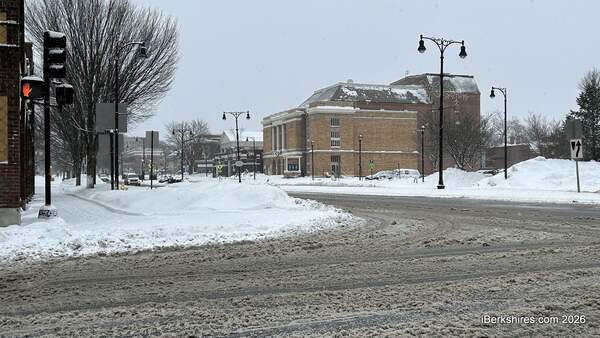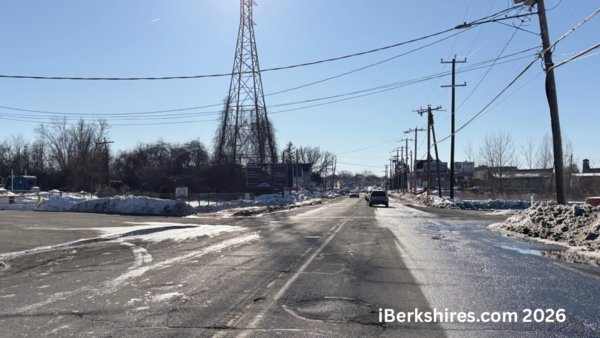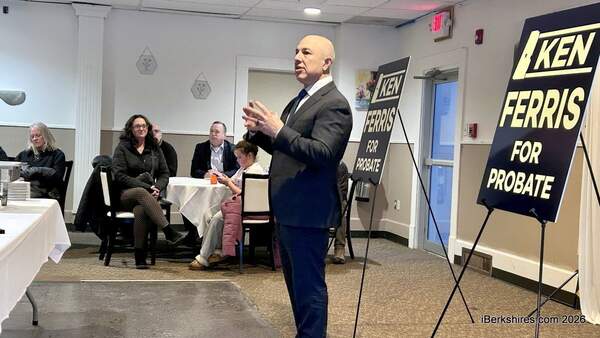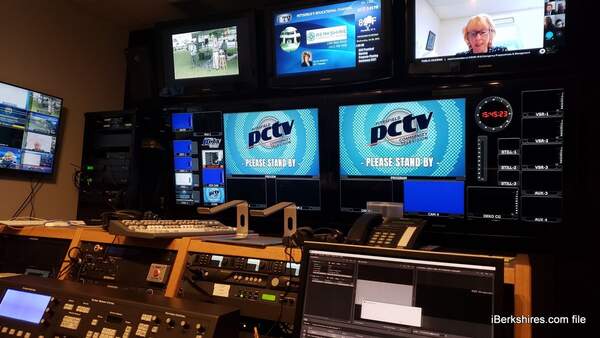
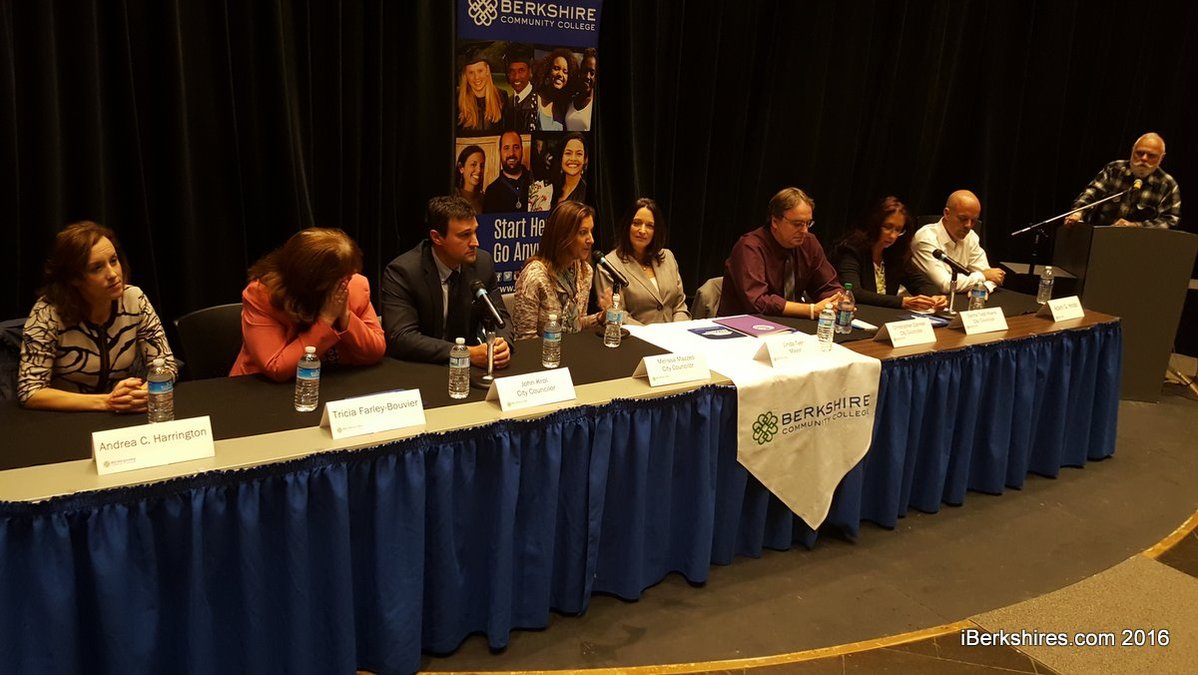
Pittsfield Pols Discuss Importance of Millennial Voters At BCC Forum
PITTSFIELD, Mass. — In just a few short years, college students will be graduated, looking for work, buying a home, having children, and pay off loads of student debt.
But right now they aren't thinking of that, at least not in the political sense.
The 18- to 29-year-old age bracket votes at a much lower rate than older generations. And because of that, it is easier for politicians to craft their views around the population that put them in office — ignoring the issues of the young.
"The 18-to-29 age group only has at best a 45 percent turnout. The highest voting group of people are over 60 and 72 percent turn out to vote, at least 72 percent. You want want government benefits and want governance here, you have to vote," said James Arpante, a professor of history and government at Berkshire Community College.
"Just look at the benefits the older people have. Why do politicians pay attention to a certain group of voters over and over? Because they want to get re-elected or elected."
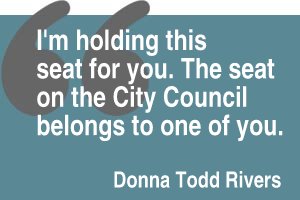
State Rep. Tricia Farley-Bouvier says it is impossible for someone running for public office to knock on every single door in the city and talk to the residents about the issues. So, those running for office narrow down their scope to those actively engaged — and the statistics show it isn't the younger generation.
"When you talk to elected officials and they need to run for re-election, if you don't vote you don't count. If you don't vote you don't count," the Pittsfield Democrat said. "That seems pretty severe but when it comes down to election and I am going door to door, I go to the doors of people who vote. To knock on every single door is an impossibility."
The conversation about youth in politics was one put before a panel of those who have run in local elections. It included Farley-Bouvier and her challenger for the state House of Representatives Christopher Connell, and Mayor Linda Tyer, City Councilors John Krol, Melissa Mazzeo and Donna Todd Rivers. Democratic candidate for state Senate Adam Hinds and his primary challenger Andrea Harrington rounded out the group at the college on Thursday afternoon.
The message from all of them was simple: we need youth to be involved for the betterment of the city, state, and country.
"It may not matter today, at this moment. But it does matter. It is going to matter," River said. "I'm holding this seat for you. The seat on the City Council belongs to one of you. I'm holding it for you and I need you to do your work first in getting educated about the issues."
While there may seem to be a disconnect between the young people and politics now, everything that happens now will matter even more in a few years. Rivers told the students at BCC to start making it a habit to get to the polls, work on campaigns, and advocate for issues they care about.
She said she'll be passing that council seat onto others, as she followed councilors before them, and those taking the seat will serve the city much better with a longer history of knowledge and understanding of the issues.
Seats on the City Council or on the School Committee matter more than the president, said Tyer. Yet voter turnout for the presidential election vastly outpaces local elections.
"In your local races such as races for mayor, City Council, School Committee, those are the races that have the biggest impact on your day-to-day life. But, for example, we might only have 25 percent voter turnout. For each person that voted, three people did not vote. That means your destiny is being controlled by one person per every three. That is not the best way for our democracy to be effective," Tyer said.
"When it comes to presidential election, we might see 60, 62 percent turnout. That's better but we want to see 62 percent voter turnout in our local elections."
When politicians are knocking on doors, hiring staff, talking to community members, their plans and visions are crafted. The full picture isn't clear when a large segment of the population isn't being heard.
"When we are thinking about issues that matter to the people we represent, we represent a broad range of people. We represent young and old. We represent a diverse group of people and we need to hear from all groups and about issues that confront them and they need help with," Tyer said.
The politicians all said not only to vote, but to become active in campaigns and politics. Connell started working for a state representative when he was 16 and since being able to vote hasn't missed an election. Ideas that come from young people helps craft a better future.
"It is really an untapped resource for campaigns because there has not been much participation from that sector. I think it is critical for the success of any campaign not only for the ideas and perspectives of these workers but also for their friends," Connell said.
Hinds remembers working for the Kerry presidential campaign when technology was really taking off. The campaign staffers understood it and technological advancements showed those in politics that things can be different — including government.
"We need to be discussing a range of issues that impacts the whole community," Hinds said.
He agrees that political consultants will tell a politician to craft a message to voters in order to get elected. If there is a great number of younger people involved, then the message will include more focus on the issues that population is concerned about.
"It is incumbent on us as residents to realize what are the issues that I care about and what are the avenues locally, in all levels of government. It matters," Hinds said.
The ability to help craft platforms for those running for office has never meant so much than it does now, according to Krol.
"The issues we are facing either nationally or locally are perfectly aligned with the issues facing this generation. When you look at the challenges we face, this generation is facing things past generations never had to deal with like increased student debt, lack of job opportunities, those kind of things you have to be able to have younger people involved or else we won't address the issues," Krol said.
An added bonus for those working on campaigns at a younger age is the resume building, Farley-Bouvier said.
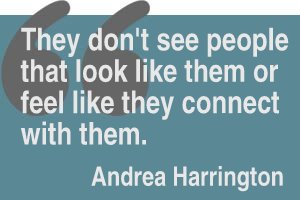
"When you are involved in a political campaign, there is a lot of leadership opportunities and advancement in a really quick way. You can go from working a couple of shifts on a Saturday to becoming a field director in a short about of time," Farley-Bouvier said.
Harrington hired a 19-year-old campaign manager. Multiple campaign staffers of Hinds are college students. The younger people have a path to active roles in campaigns — if they aren't the candidates themselves.
More voices also dilutes the power of the money in politics as well, according to Harrington.
"The reason why money is so important and the people with the money in politics has so much power is because there are so few people voting. If more people would just pay attention and come out and vote, then the money interest wouldn't have that hold on some of these issues," Harrington said.
What are those issues millennials care about? It is college debt, as many on the panel discussed. It is job opportunities. It is civil rights. It is the environment. It is creating more things to do in the city of Pittsfield. But, the politicians can't know for sure.
"We think, we think, we think we know. But we need you to tell us," Tyer said.
But that isn't to say there is no interest among the young people. Voting numbers may be low, as they have been historically, but that isn't an indication that the younger population doesn't care. There is just a disconnect between the youngest voters and actually getting to the polls.
"Young people don't connect with politicians. They don't see people that look like them or feel like they connect with them. I think it is important for young people to realize you have so much power just in voting," Harrington said.
Krol says politics is a "two-way" street between the candidates and the voters. Those lines of communication need to be open and active to advocate for issues.
"When you have the right issues and the right candidate,the young people will come out. It is kind of a two-way street. You have to be able to advocate and constantly be communicating about issues that are important to you," Krol said.
"For instance, Bernie Sanders was the guy who was able to galvanized the youth vote because he talked about making colleges and universities tuition free. That got people excited because on the big scale that seems like a reasonable thing to do. We spent $6 trillion in wars over the last 15 years but aren't investing in the same way for colleges and universities."
Krol said Sanders had massive support in the presidential primary from those under the age of 40 — because he talked about issues that spoke to them. Krol, however, said it isn't just the presidential campaign that matters. There are mid-term elections. There are local elections.
"I would love to see more young people involved in city government, whether it be boards or commissions or running for City Council. We could use more progressive voices on the City Council," Krol said.
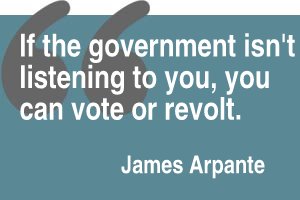
Mazzeo said civic engagement starts at home. When she was growing up her family always discussed politics and she remains involved, passing that passion along. She told the students to start in their own homes by having those conversations about what's going on.
Connell said, "Things have changed. Today, we are in the 21st century, I think we have some sort of disconnect. I think some ways to improve that is one, through social media. I think we can get the word out about the importance of voting. And also, I know we can register to vote online but my hope for the future, if we can work out the bugs, is to have online voting. I think that will help not only our young voters but people who are confined and can't get to the polls."
Farley-Bouvier said the state has been making it easier to vote, including online voter registration and now early voting, to try to get more to the polls.
But when it comes to voting overall, Arpante phrased it best on Thursday.
"Voting is an alternative to violence. If the government isn't listening to you, you can vote or revolt."
The panel discussion was put on by Edward Laird, chapter chair of Massachusetts Public Information Resource Group at Berkshire Community College and moderated by Arpante.
Tags: community forum, election 2016, panel, political event,



